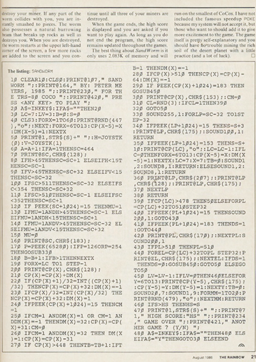Just as I’d hoped, the University of Texas is making all of Warren Spector’s talks available. Fortunately, you won’t have to buy a DVD – instead, you can just download them all from here (Quicktime format, large files). I would like to suggest you do so quickly, before they change their minds (or run out of bandwidth).
Edit: Well, that was fast. They’ve taken the page down. Turns out they made them available before all the legal stuff was handled. There’s an alternate download site here…but I’m not sure if that’s supposed to be available or an oversight.
Edit: Now the alternate site is gone too. I guess we’ll just have to wait and hope the files become available again in some form.


